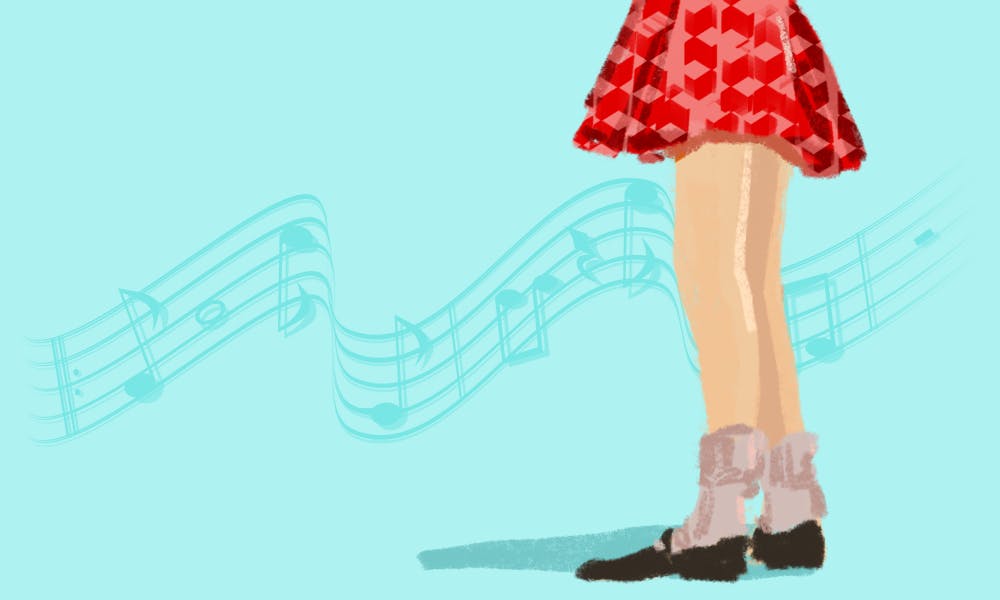In a TikTok video amassing 1.4 million views and counting, fashion analyst and forecaster Mandy Lee, also known as @oldloserinbrooklyn, predicted the return of Twee to the fashion community in 2022. In the video, Lee describes the Twee aesthetic as “an offshoot of hipster indie–style music” that inspired film and style in the early 2010s. However, it’s impossible to remember Twee through only the familiar fashions of knit cardigans, ballet flats, and polka dot patterns; the Twee Revolution was also a movement fueled by music.
As we enter a new year, nostalgia is bridging the gap between teenage TikTok trends and the Twee Revolution of the 2010s. Twee, initially a word used to describe a British indie music community, traveled overseas to define an era of music, film, fashion, and an attitude of embracing oddities. It’s possible that Zooey Deschanel’s quirky, school teacher–esque looks and the folky soundtracks of our favorite coming–of–age movies will make a reappearance this year.
At the height of the Twee Revolution, in 2014, journalist Marc Spitz published Twee: The Gentle Revolution in Music, Books, Television, Fashion, and Film. Spitz recognizes pockets of US cities embracing Twee, which he describes as “a kind of fetishization of the nerd, the geek, the dork, the virgin.” Spitz reclaims the word Twee as less of a pejorative than a wide–ranging artistic cultural landscape. Makeshift–sounding production elements, such as boy–girl harmonies and simple guitar chords, give Twee music its gentle innocence. Twee music encapsulates the experience of being the quirky protagonist: the Juno MacGuff's and the Jessica Day's of the world.
Specifically, Spitz recognizes Stuart Murdoch, the lead singer of Scottish indie–pop band Belle and Sebastian, as a pioneer of Twee subculture. The kinder, more tolerable (and less problematic) cousin to The Smiths, Belle and Sebastian are known for their whimsical songwriting, telling stories of made–up characters experiencing feelings we're all familiar with: developing simple crushes, going to school, and the monotony of working 9–to–5. The song “If You’re Feeling Sinister,” centers on a troubled woman named Hilary who represents the oxymoronic nature of religion: “She was into S&M and bible study, not everyone’s / Cup of tea she would admit to me.” Like many Twee artists, Murdoch’s lyrics are both beautiful and peculiar. With each listen, there's a new pop culture reference, sarcastic remark, or puzzling story to take apart and relish.
The music of Belle and Sebastian shapes Spitz’s definition of the Twee music that may very well make a comeback in 2022. Their unique indie–pop sound inspired artists to think outside the box and to approach music with simplicity, lightheartedness, and a new kind of creativity. Anti–folk, a modern approach to traditional folk music incorporating pop and punk elements, continued to shape the Twee genre throughout the 2010s. From the comforting sounds of Zooey Deschanel and M. Ward’s duo, She & Him, to the heartfelt, eccentric vocal stylings of Regina Spektor, anti–folk found its place on the soundtracks of the most iconic Twee films.
Kimya Dawson, a notable anti–folk artist, became a new face of the Twee cultural movement with her endearing lyrics evoking memories of the sweetness of childhood and puppy love. Dawson’s song “Tire Swing” was featured in the 2007 Twee cult classic Juno: “A pallbearer aboard took me to the giant tire swing / Gave me a push and he started singing / I sang along while I was swinging / The sound of our voices made us forget everything / That had ever hurt our feelings.”
In this moment of great flux, we turn to an era that gave us comfort. To open our computers and stream a Wes Anderson movie, another member of Marc Spitz’s "Twee Pantheon," is to seek an escape from our everyday pressures and worries. By embracing the Twee revival, we can channel the experiences of those self–proclaimed misfits in the “hipster” pockets of New York, London, Philadelphia, and Boston who saw the world through the eyes of Spitz’s “Gentle Revolution.”
Twee music is more than Carrie Brownstein and Fred Armisen’s hyperbolic ridicule of feminist bookstores and organic meals in “Portlandia.” Twee music is the reclamation of what British music critics once deemed as too strange and quaint for the charts. Artists like Feist, Conor Oberst of Bright Eyes, and Ingrid Michaelson prove that Twee music can be a smashing hit. Since the Twee Revolution of the 2010s, the presence of anti–folk and indie rock continues to impact the music industry, from underproduced performances in dive bars all the way to the Billboard charts.







